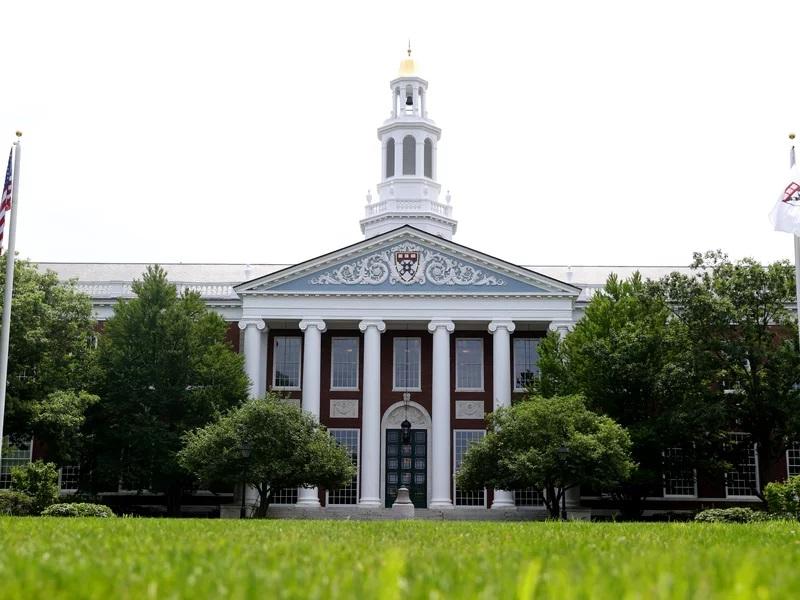Harvard professor who studies dishonesty is accused of falsifying data
By: Juliana Kim npr

Harvard professor who studies dishonesty is accused of falsifying data

Francesca Gino has been teaching at Harvard Business School for 13 years. Maddie Meyer/Getty Images
Francesca Gino, a prominent professor at Harvard Business School known for researching dishonesty and unethical behavior, has been accused of submitting work that contained falsified results.
Gino has authored dozens of captivating studies in the field of behavioral science — consulting for some of the world's biggest companies like Goldman Sachs and Google, as well as dispensing advice on news outlets, like The New York Times, The Wall Street Journal and even NPR .
But over the past two weeks, several people, including a colleague, came forward with claims that Gino tampered with data in at least four papers.
Gino is currently on administrative leave. Harvard Business School declined to comment on when that decision was made as well as the allegations in general.
In a statement shared on LinkedIn , the professor said she was aware of the claims but did not deny or admit to any wrongdoing.
"As I continue to evaluate these allegations and assess my options, I am limited into what I can say publicly," Gino wrote on Saturday. "I want to assure you that I take them seriously and they will be addressed."
The scandal was first reported by The Chronicle of Higher Education earlier this month. According to the news outlet, over the past year, Harvard had been investigating a series of papers involving Gino.
The university found that in a 2012 paper, it appeared someone had added and altered figures in its database, Max H. Bazerman, a Harvard Business School professor who collaborated with Gino in the past, told The Chronicle.
The study itself looked at whether honesty in tax and insurance paperwork differed between participants who were asked to sign truthfulness declarations at the top of the page versus at the bottom. The Proceedings of the National Academy of Sciences , which had published the research , has retracted it.
Shortly after the story, DataColada , a group of three investigators, came forward with similar accusations. After examining a number of Gino's works, the team said they found evidence of fraud spanning over a decade, most recently in 2020.
"Specifically, we wrote a report about four studies for which we had accumulated the strongest evidence of fraud. We believe that many more Gino-authored papers contain fake data. Perhaps dozens," DataColada wrote.
The group said they shared their concerns with Harvard Business School in 2021.
Gino has contributed to over a hundred academic articles around entrepreneurial success, promoting trust in the workforce and just last year published a study titled, "Case Study: What's the Right Career Move After a Public Failure?"
The administrator of this group reserves the right, along with the site moderators, to moderate all and any postings to this group, including the right to enforce the ToS, the CoC, and also including anything that the administrator deems within his sole discretion to be offensive, including but not limited to political and/or off topic comments, with the power to delete in exercising that right.
It would be best, therefore, to be civil in posting on this group and not contravene the CoC, the ToS, and to not post comments that are political, insulting, taunting, trollling or offensive.
By now it should be well known that I am unable to open certain sources, videos and pictures. If I cannot, I will ask that they be described and explained. If the poster refuses to comply, their comment will be deleted. Instagrams are banned.




After settling down from laughing at the story of the guy carving initials into the collaseum, this story got me laughing again - what a morning. Well, isn't it true that it takes a thief to know a thief?
Harvard just is not what it used to be.
Back when I was a law student my best friend and classmate and I drove to Cape Cod, stopping at the Harvard Law School, where the chief librarian gave us a tour of the law library and we sat in on a class on Contracts and Agreements. I was quite impressed. I guess the quality has lessened since then,
LOL, a cheating professor.
I guess the drive to be published must be greater than the drive to be ethical.
Seems to me that a lack of ethics is pretty commonplace for persons in high places in America these days.
Maybe he can blame it on ChatGPT.